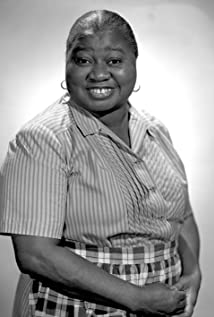Hattie McDaniel
After working as early as the 1910s as a band vocalist, Hattie McDaniel debuted as a maid in The Golden West (1932). Her maid-mammy characters became steadily more assertive, showing up first in Judge Priest (1934) and becoming pronounced in La mujer que supo amar (1935). In this one, directed by George Stevens and aided and abetted by star Katharine Hepburn, she makes it clear she has little use for her employers' pretentious status seeking. By The Mad Miss Manton (1938) she actually tells off her socialite employer Barbara Stanwyck and her snooty friends. This path extends into the greatest role of her career, Mammy in Lo que el viento se llevó (1939). Here she is, in a number of ways, superior to most of the white folk surrounding her. From that point her roles unfortunately descended, with her characters becoming more and more menial. She played on the "Amos and Andy" and Eddie Cantor radio shows in the 1930s and 1940s; the title in her own radio show "Beulah" (1947-51), and the same part on TV (Beulah (1950)). Her part in Lo que el viento se llevó (1939) won her the Oscar for Best Supporting Actress, the first African American actress to win an Academy Award, it was presented to her by Fay Bainter at a segregated ceremony, she had to sit at the back away from the rest of the cast.

